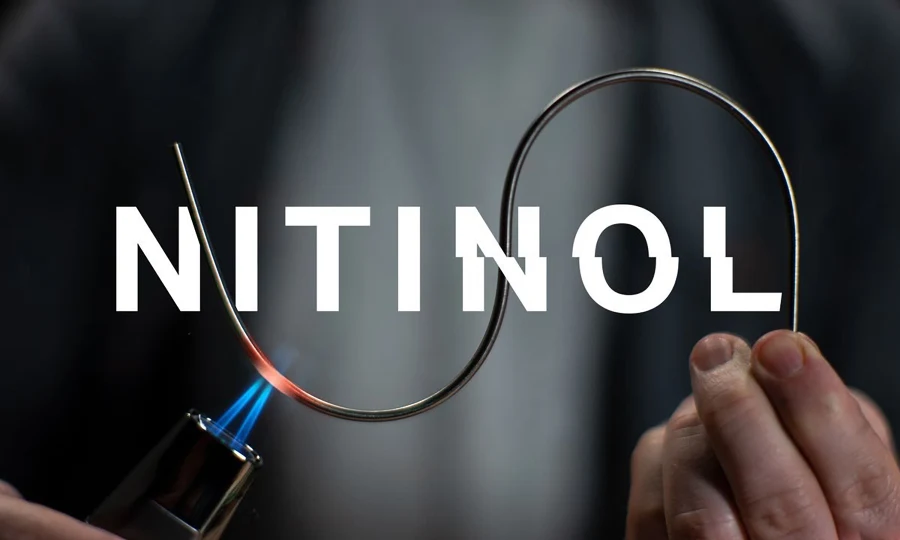Nitinol: A versatile material with a unique shape-memory effect
Nitinol is a nickel-titanium alloy with a unique shape-memory effect. This means that Nitinol can be deformed and then return to its original shape when heated. This property makes Nitinol a versatile material with a wide range of applications.
How does Nitinol work?
Nitinol is a thermoelastic alloy. This means that its shape is determined by both its temperature and its stress state. When Nitinol is cooled below its austenite finish temperature (Af), it undergoes a phase transformation from austenite to martensite. Austenite is the high-temperature phase, and martensite is the low-temperature phase.
The martensite phase is less dense than the austenite phase, so it has a higher elastic modulus. This means that martensite is more resistant to deformation than austenite.
When Nitinol is heated above its austenite start temperature (As), it undergoes a phase transformation from martensite to austenite. This phase transformation is reversible, so Nitinol can be deformed and then returned to its original shape by heating it above its As.
Applications of Nitinol
Nitinol is used in a wide range of applications, including:
- Medical devices: Nitinol is used in a variety of medical devices, including stents, orthodontic braces, and artificial joints. The shape-memory effect of Nitinol allows it to be used to create devices that can be inserted into the body in a deformed shape and then return to their original shape once they are in place.
- Aerospace: Nitinol is used in a variety of aerospace applications, including aircraft actuators, valves, and connectors. The shape-memory effect of Nitinol allows it to be used to create devices that can be used to precisely control the position of components in aircraft.
- Industrial: Nitinol is used in a variety of industrial applications, including sensors, actuators, and springs. The shape-memory effect of Nitinol allows it to be used to create devices that can be used to absorb and release energy.
Advantages of Nitinol
Nitinol has a number of advantages over other materials, including:
- Shape-memory effect: The shape-memory effect of Nitinol makes it a versatile material that can be used in a wide range of applications.
- Corrosion resistance: Nitinol is resistant to corrosion, making it a good choice for applications in harsh environments.
- Biocompatibility: Nitinol is biocompatible, making it a good choice for medical applications.
Disadvantages of Nitinol
Nitinol has a few disadvantages, including:
- Cost: Nitinol is more expensive than some other materials.
- Processing: Nitinol can be difficult to process.
Conclusion
Nitinol is a versatile material with a unique shape-memory effect. This property makes Nitinol a good choice for a wide range of applications, including medical devices, aerospace, and industrial.

